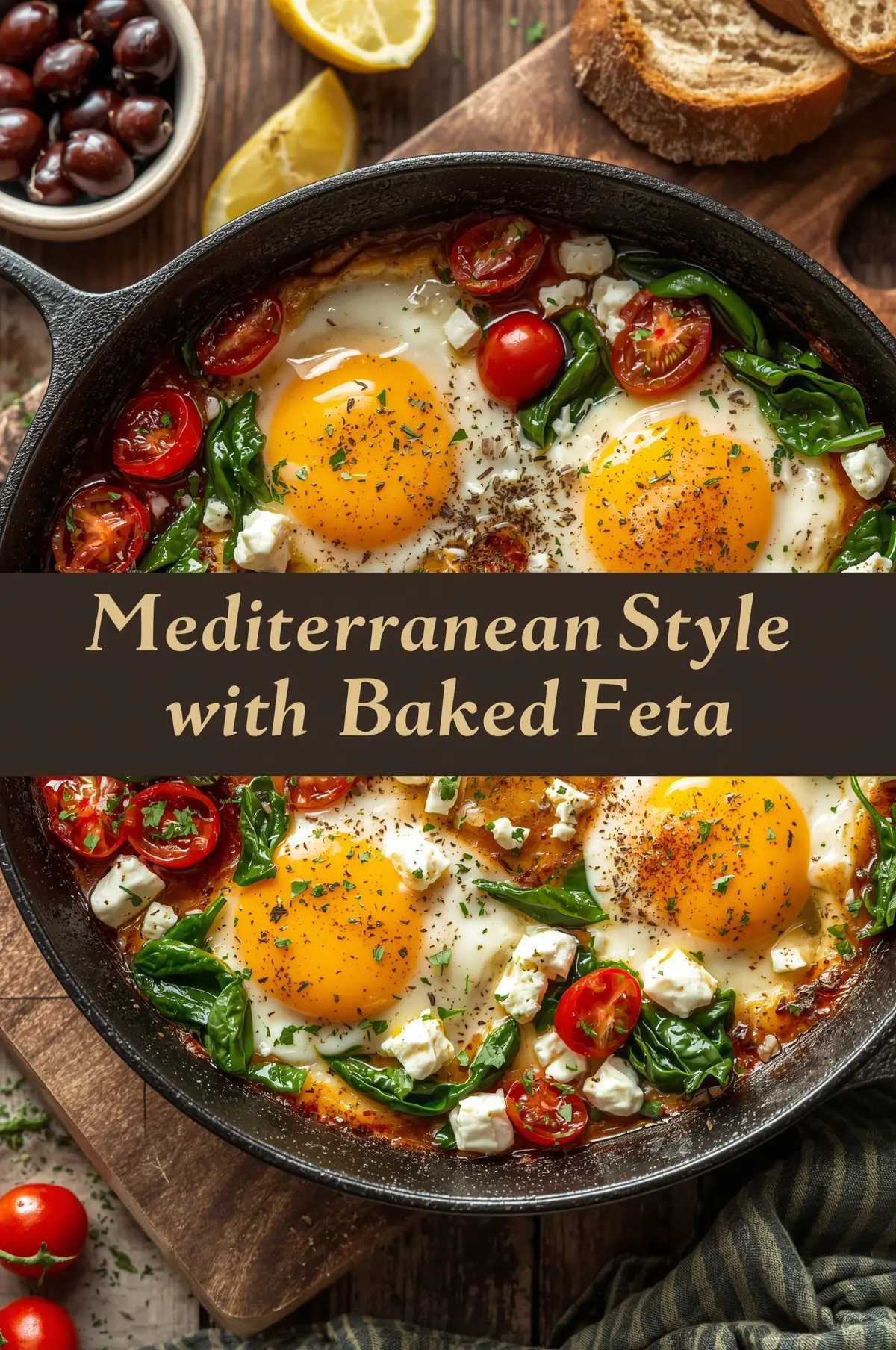Physical Address
304 North Cardinal St.
Dorchester Center, MA 02124
Physical Address
304 North Cardinal St.
Dorchester Center, MA 02124

Bring the flavors of the Mediterranean to your breakfast or brunch table with this Mediterranean Style Eggs with Baked Feta recipe. Creamy baked feta pairs beautifully with eggs, olive oil, and a medley of herbs, creating a simple yet flavorful dish that’s perfect for any time of day.
Preheat your oven to 375°F (190°C). This ensures the feta and vegetables bake evenly.
Drizzle olive oil over a small baking dish. Add the cubed feta, chopped tomato, and bell peppers if using. Sprinkle with oregano, thyme, salt, and pepper.
Place the dish in the oven and bake for 10–12 minutes, or until the feta is slightly golden and soft.
Remove the dish from the oven and carefully crack the eggs over the baked feta and vegetables. Return the dish to the oven and bake for another 8–10 minutes, or until the egg whites are set but the yolks are still slightly runny.
Sprinkle chopped fresh parsley or basil on top. Serve immediately with crusty bread or toast to scoop up the creamy feta and eggs.
This Mediterranean Style Eggs with Baked Feta recipe is a delicious, wholesome, and easy-to-make dish. Its rich flavors, combined with fresh herbs and vegetables, make it a perfect choice for a healthy breakfast, brunch, or light dinner.